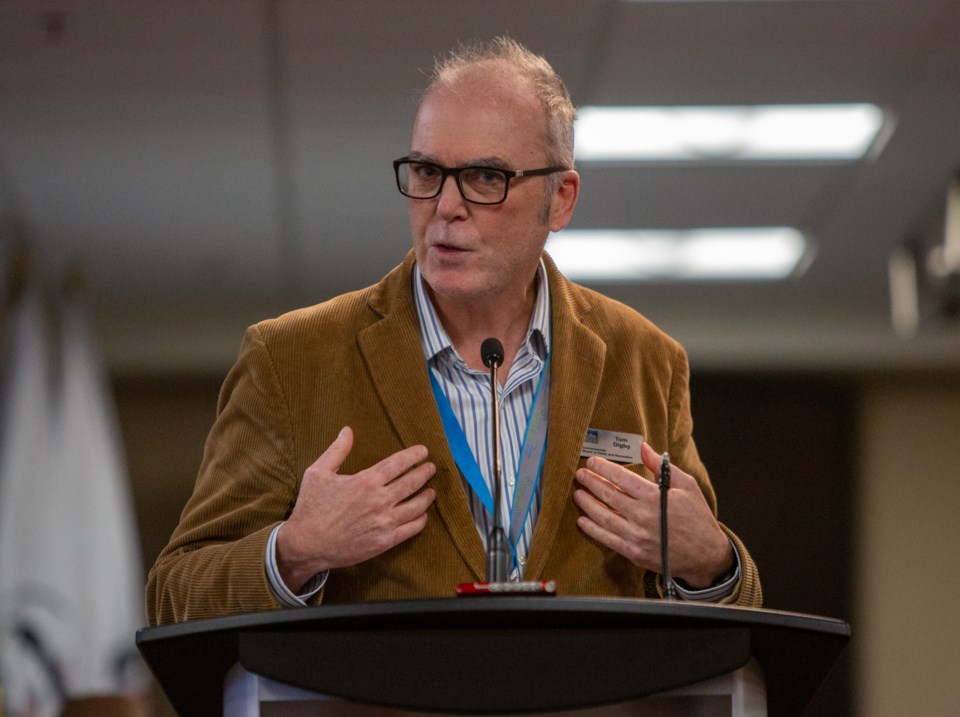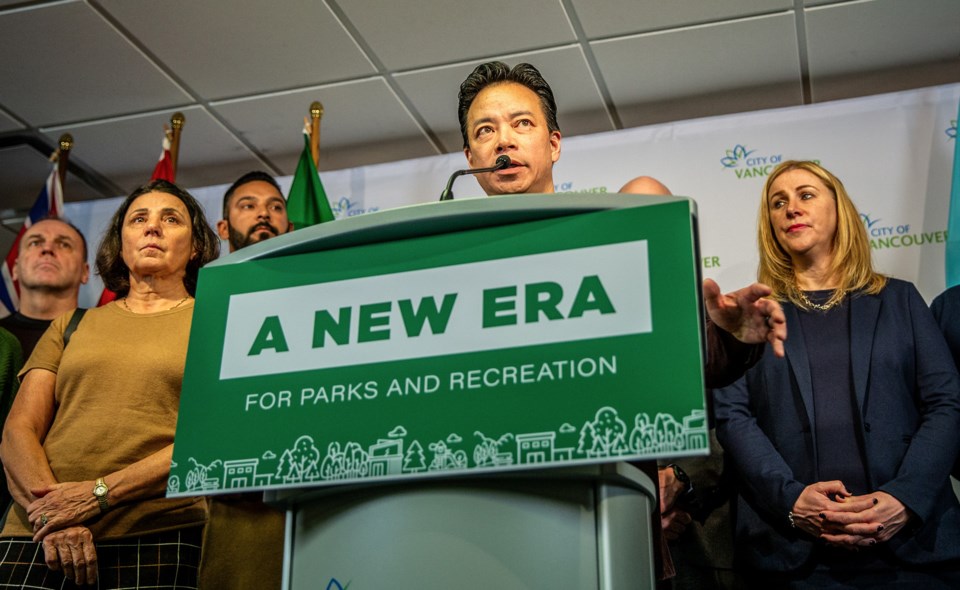The City of Vancouver has paused the work of abolishing the elected park board after the provincial government failed to implement Mayor Ken Sim’s requested amendments to the Vancouver Charter in the spring session of the B.C. legislature.
The decision to pause the transition of bringing duties of park commissioners under the jurisdiction of city council was announced Friday in a staff memo authored by Sandra Singh, one of the city’s deputy city managers.
Singh noted the provincial government’s spring session ended Thursday.
“The provincial government has reaffirmed its commitment at a future date [to] enact these legislative changes and we will share any further indication of regarding potential timing when we receive that information,” she wrote.
“In the meantime, we are pausing further operational planning in preparation for a transition of governance. I want to thank all staff, especially those in Parks and Recreation, for their ongoing support and patience as we navigate this significant activity in a space of uncertainty.”
City staff had been working on a transition plan and indicated in a report to council in November 2024 that an estimated cost savings of $70 million could be achieved over the next decade.
That transition work, however, had been hampered by the board’s decision not to allow park board staff to be involved in any planning related to the transition. The board is now controlled by a majority of commissioners fighting abolition.
Ravi Kahlon
Minister of Housing and Municipal Affairs Ravi Kahlon said in a statement Friday that the provincial government “will continue to work with the city regarding their request.” Kahlon provided no details on when, or if, the amendments would be made.
“We know how important it is for local governments to have all the tools they need to provide the good value and good governance that people deserve,” the minister said. “During the spring session, we prioritized legislation to secure our economy in the face of Trump’s unjustified tariff threats.”
Premier David Eby initially committed to honouring the mayor’s request—which was supported by the seven councillors belonging to his ABC Vancouver party—but suggested during last year’s election campaign that it wasn’t a priority.
“It's very unlikely this would be a priority for the province before the next municipal election [in 2026], and they've got a lot of work ahead of them,” Eby told an audience at an all-candidates’ meeting Oct. 12, 2024, at St. James Community Square.
'Beyond disappointing'
Sim, meanwhile, said he still expects Eby to follow through on his public commitment to dissolve the board and have its duties fall under city council, which his party controls with a majority.
“It is beyond disappointing that the Province did not take action in May as they committed to, so we call on the premier to commit to the transition of the elected park board as early possible in the fall sitting,” Sim said in a statement Friday.
He reiterated previous public comments that the transition is expected to save Vancouver taxpayers “millions of dollars, support our threatened film industry and give city council the ability to address long-standing issues of lack of park board amenities in South Vancouver.”
Added Sim: “Vancouver, like the rest of Canada, is facing tough economic times and giving the city the ability to streamline governance while gaining significant financial savings is key to weathering these uncertain times.”

'Great news'
Park commissioner Tom Digby shared Singh’s memo Friday via the X social media platform. In an interview, he said staff’s decision to pause further transition work was “great news for the park board and Vancouver.”
“I think the province certainly sees no reason to change the elected park board, and I was delighted that they've recognized that, and now the city has also recognized that,” said Digby, noting the decision also gives park board staff clarity.
“The park board keeps having its meetings and passing its policies, and staff was getting very confused about who to take their orders from. So now that that's cleared up, staff can relax and do better work, and the city staff can do better work as well—and we don't have to waste any more time on the transition.”
Sim’s rationale for abolishing the board is based on what he has described as a “broken system,” which he said at various news conferences and in interviews that is not working in the best interests of citizens.
Examples he provided included the facade of the Vancouver Aquatic Centre falling off, a jurisdictional dispute over a water pipe at Spanish Banks and issues related to getting the Stanley Park train operating for the holiday season.
A leaky Kitsilano pool was another example.
Maintenance of the Aquatic Centre and Kitsilano pool are the responsibility of the city, not the park board, as some commissioners have pointed out in the public debate that has continued since December 2023.
Staff layoffs?
The staff report released in November 2024 estimated savings of $1.5 million to $3 million per year alone on “position savings,” which staff at a technical briefing said would see park board staff fill city vacancies.
“Our goal is not to have any staff layoffs," Singh said at the time.
Savings of $1.8 million to $3.3 million per year were identified under a category called “early operational integration opportunities.” For example, staff who currently support the elected park board could move into the city clerk’s office.
Arts and culture, communications and marketing, and social policy were some of the other areas identified as amalgamating to avoid duplication of services. The report estimated, so far, that 10-20 positions could be affected by duplication.
Abolishing the seven-member elected board would translate to a savings of $280,000 per year, or $2.8 million over 10 years, said the report, which gave no indication when the park commissioners would be phased out.
Sim has summarized that $70 million in savings could be achieved over the next decade.
In what he described in 2024 as a streamlining of services, the transition was expected to achieve further savings once a new governance model is established, including millions of dollars in infrastructure project costs.
“And these are conservative estimates,” Sim told reporters at the time.
X/@Howellings



